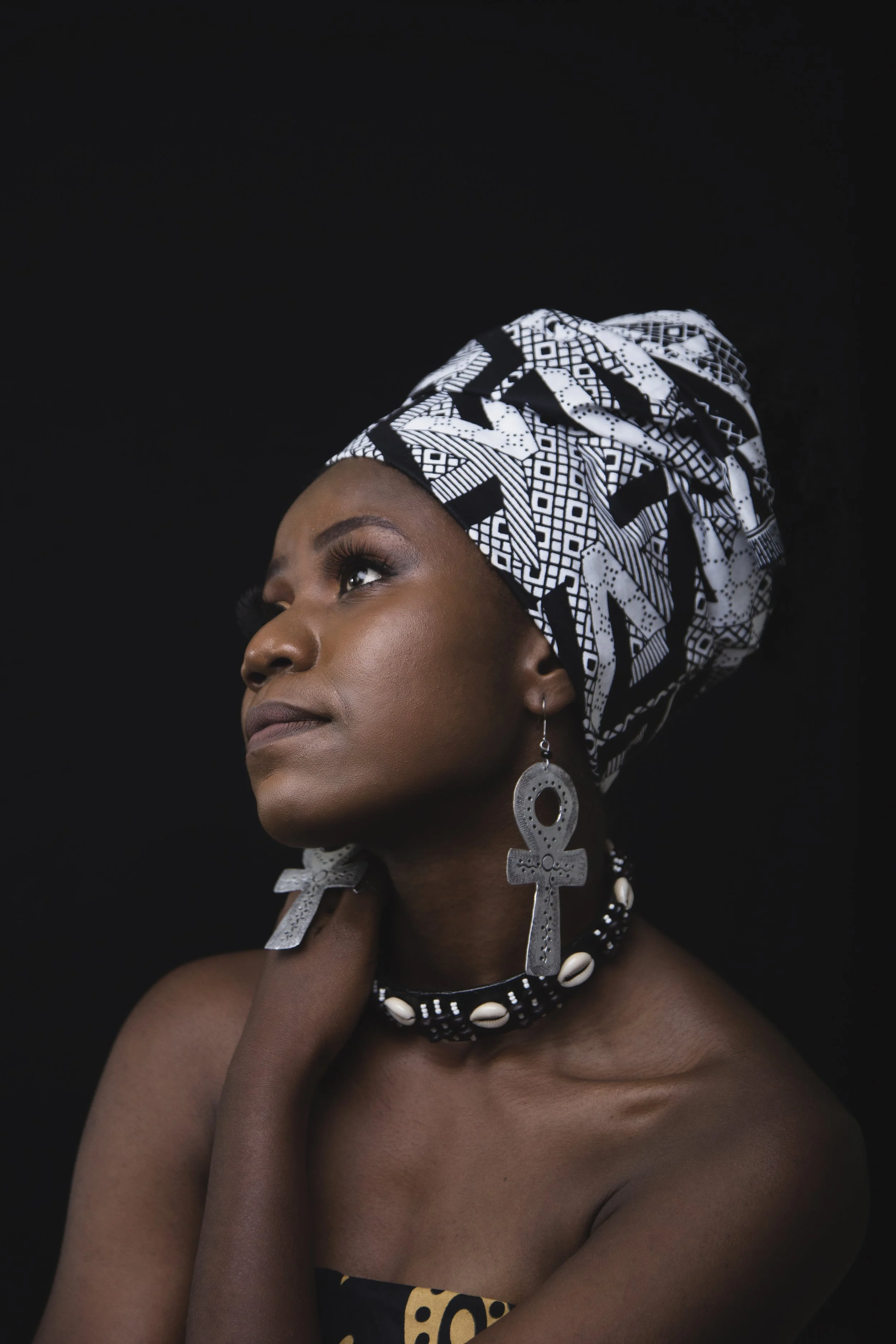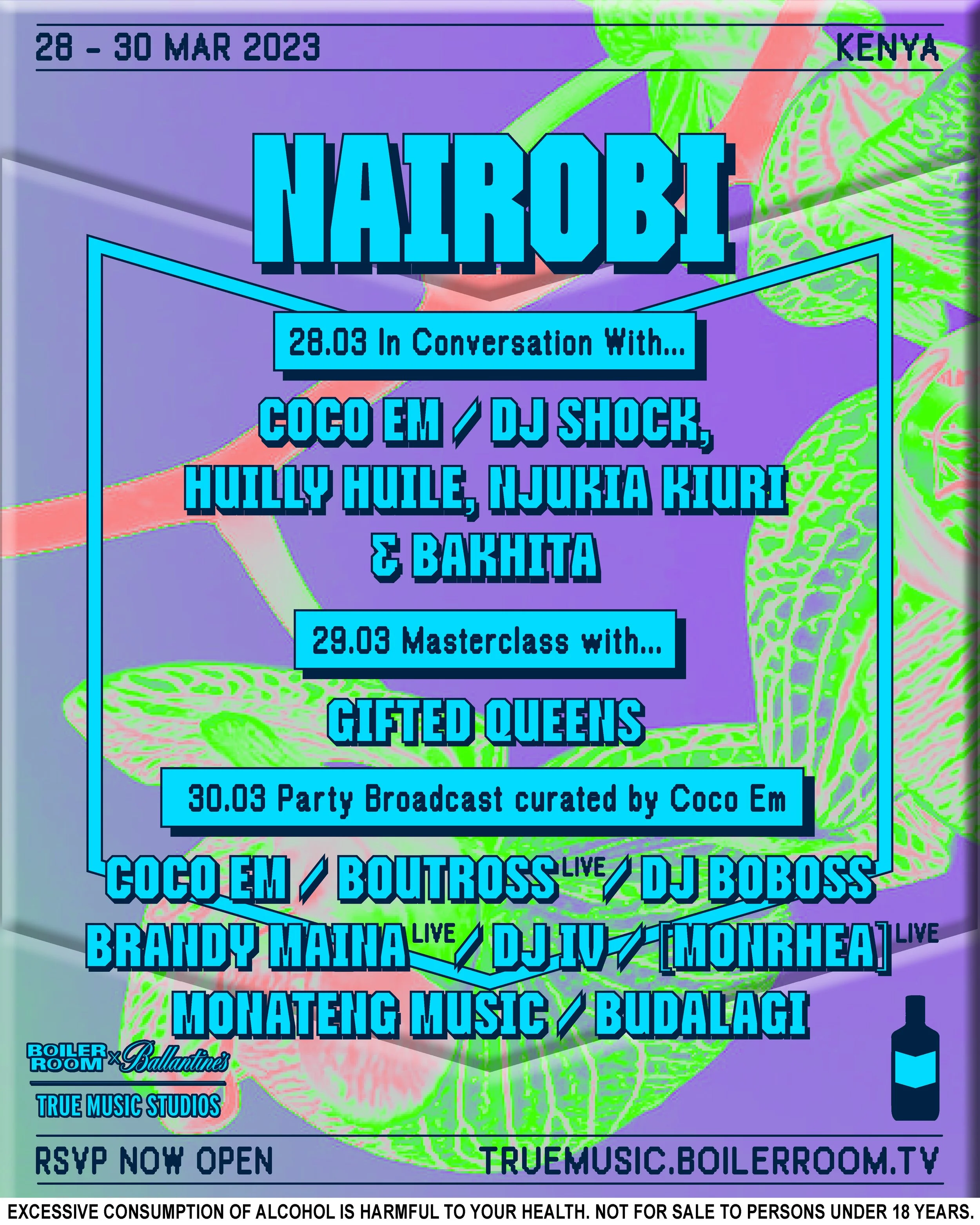Liboi’s State Of Being: The Kenyan Artist Championing Mental Health & African Culture
On a hot Nairobi morning in early March, Liboi chats nonchalantly about strawberry yoghurt which she has just had for breakfast. ‘If my music were a flavour maybe it would be strawberry because of the sweetness’- a fitting description to her enchanting soulful sound that has captured the imagination of her listeners through the innovative use of African folk music, meditative practices and societal critique. Determined to keep the art of the ancestors alive, she draws inspiration from various communities’ music, predominantly the Kenyan coastal chakacha drum patterns and swahili metaphorical devices.
On her debut EP, ‘The State of Being’, Liboi explores humanity’s complexities from the search for truth in ‘Ukweli’ to the place of women in society in ‘Mwanamke’. Her melodic hums and meditative authenticity are reminiscent of the legendary Ayub Ogada’s memorable music while an acoustic guitar presence injects a familiar modernity into the cultural experience provided by her captivating vocals.
We caught up with Liboi and spoke about her passion for African culture, the challenges of being an alternative music artist in Kenya, and the future of her music.
What was your entry into music and art in general?
My dad was a DJ and would play music in the house so I danced a lot as a child. Subconsciously, I must have developed an interest then. In high school, I was in the journalism club which was my first formal interaction with arts because I used to interact with photography and collect news. On Friday I would report ‘news’ in front of the whole school. The school had an exchange program with a school in Sweden and I was picked to travel to Sweden. That built my interest because here I was, leaving Kenya as a child because of art. After high school, I trained in script writing, photography, editing, and videography through a program at a resource centre in Kariobangi. Gradually I changed to cinematography. Growing up in Kariobangi I felt that the stories that were being told about my neighbourhood by the media were skewed, and so I wanted to tell my own story. I began reporting to express myself to the community and beyond.
Now, other than music, I work on sound for podcasts, production management and project coordination.
What kind of influence did your dad being a DJ have on you?
He played a lot of diverse African music. He also bought me my first Sauti Sol album-’Mwanzo’. When I started off he actually cautioned me, despite being in the industry and loving music. He had seen, especially, how women are treated. He was also concerned about longevity in the industry.
How do you describe your music?
Authentic, calm, soothing and good vibes meant to help you forget your troubles for a minute. Initially, I actually didn’t like my voice because I didn’t know how to work with it. Now I love it and I try to make the best out of it.
When you didn’t like your voice, did you know that you could sing? And what makes you like it now?
I knew I could sing because people told me so. Because I loved music, I wanted to be able to create music and express myself. I started falling in love with my voice when I was working with ‘Voices in my head’ because I found my voice through it.
I realised that back then, negative feedback would bring me down because I also didn’t know what I had in me. Negative feedback can devalue something when you don’t value it.
Who are some of your musical inspirations?
I explored different sounds before landing on my current sound. African culture really influences me. I don’t want us to lose it so I try to retain it in my music but also keep it fresh. Habib Koite, Kwalinga, Babiyon, Fadhili, Sauti Sol, Savara, Bi Kidude, and Zawoze are some of my inspirations- generally African and Jazz music.
What is your perception of how Kenyans receive your music vis a vis how it’s received abroad?
There are so many brilliant Kenyan musicians that we never get to listen to. We are exposed to only a small variety of music especially in the media, where they play the same things. If not for people like Patricia Kihoro on her former show, or the veteran Fred Machoka, there would be music that never saw the light of day. There is also a lot of gatekeeping which affects the kind of music that people get exposed to, and they wouldn’t know how to receive or embrace any other sound. That also affects shows, because when people are only used to a particular sound then the pay at shows for my type of music will be less because the audience doesn’t know how to receive it. I’ve received more love abroad, though it’s changing now with more people listening to alternative music. It’s almost like here at home they are not yet ready.
Why does this narrative persist- why are we not ready and when will this be achieved?
For my music particularly, the content is a bit different. Topics like meditation and mental health are not yet wholly embraced. I’m passionate about mental health because our society is a reflection of who we are within ourselves. Things like racism, violence and hatred are a communal expression of how we actually feel about ourselves, so I want to normalise self growth. We haven’t embraced having deeper conversations about this yet.
Where are some spots you can recommend for an arts enthusiast wanting to discover the underground gems of Nairobi
Go to Goethe, Cheche and Nairobi Museum which is also a nice place for artists into history and music history. I also recommend Embe Creative which is an artist space for different disciplines.
What inspired your EP ‘State of being?’
In ‘State of being’, I’m talking about the different states of human beings in their search for paradise or freedom. In our search for a comfortable life, there are so many things that we might do and be while trying to achieve it: happy, sad, greedy, a liar. In that process there are many opportunities for one to lose oneself. So ‘State of being’ is about seeing the truth about who you are, accepting it and either changing, healing or moving forward. I want people to acknowledge their truth so that it becomes easier to move forward
What can we expect from you soon?
I’m hoping to release more music. I’m about to embark on a collaborative project with some artists from Tanzania where I am starting a 6 month residency. We’ll be working on an EP about the challenges that women in the creative industry face. In the near future I would like to start an initiative to overcome this. I want to create an enabling environment for female creatives to thrive.
Stream State of Being and follow Liboi.






